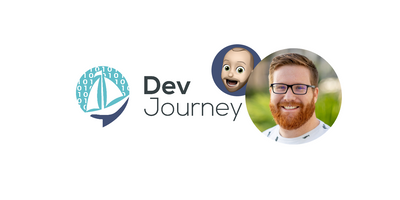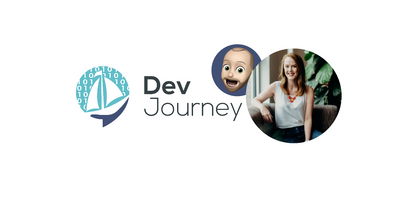This week, I published Emily Robinson's #DevJourney story on my eponym Podcast: Software developer's Journey. Among many other things, here are my main personal takeaways:
- In college, Emily made her own Major/Curriculum in "Decision Sciences". She aimed for the intersection of psychology, economics, behavioral economics, statistics, and philosophy. First I never knew one could make their own major at university. And then WOW. That's the junction of so many fascinating fields. And again, this is an example of how joining different fields and being at the crossroads of different paths really is a sweet spot.
- Emily really liked her "Organization Behavior class" (sociology and psychology applied to work) and followed the advice of her teacher to pursue a Ph.D. That took her to France and Singapore and she had a wonderful time living abroad. Having caught the expatriate-virus myself, I can only confirm that those times are fantastic!
- At the end of her Masters, Emily decided against going toward academia and instead to invest in a DataScience Bootcamp. Since she had studied statistics in college and learned to program with the R-language, this seemed like a logical choice.
- In her DataScience Bootcamp, Emily searched the following:
- A better understanding of basic tools like Version-Control
- A portfolio with down-to-earth sample projects
- A foundation in Python
- A foundation in Machine Learning
- A network of support, guidance, and peer-exchange
- Titles in DataScience is really a mess. What does DataScientist, DataEngineer, DataAnalyst, etc. really mean? No idea. Emily made the point that titles in fact don't matter as much as the 3 types of DataScience. Then the titles are more like "DataScientist, Decision"
- Analysis-Side: focus on analyzing data for human consumption
- Decision-Scientist: making recommendations
- Machine Learning Engineer: put ML into production
- Emily underlined again the power of network and relations. In this case, her brother was able to help her to get her foot in the door at Etsy. Later on, her "work in the open", meetups, her talks, and her book became the proverbial "foot". When she started at Etsy, Emily had the chance to work on some A/B-Testing almost right away. This was a fantastic playground to experiment with DataScience, Sociology, and much more. She not only learned a ton, but she also made those learnings open through a talk, which snowballed widely. Emily's book writing opportunity also stemmed out of this work in the open.
- Emily also introduced me to the concept of "Sponsorship". Unlike mentorship, where the mentor tries to guide the mentee, but remain on the sideline, a sponsor is really trying their best to pull their "sponsoree" (!?) with them, recommending them, passing on opportunities, etc. Being an avid mentor myself, and having done sponsor-like actions with my mentees, that's an interesting take I will have to ponder some more.
- Emily really recommended writing a book with a co-author. Not only because of the work-load but also for the "peer-pressure", the mix of two voices, the constant review, etc.
- Emily and her co-author Jaqueline created a podcast to go along with the book. The idea is to share more opinionated and personal stories. I like the idea of adding some color to the book in an audio format!
Advice for somebody starting to write a book:
- Have a co-author, tailor your environment to be productive, and do not write a book until you feel the need to!
Quotes:
- "I'm so glad I decided to invest some time in building my community in DataScience"
Thanks, Emily for sharing your story with us!
You can find the full episode and the show notes on devjourney.info.
Did you listen to her story?
- What did you learn?
- What are your personal takeaways?
- What did you find particularly interesting?



